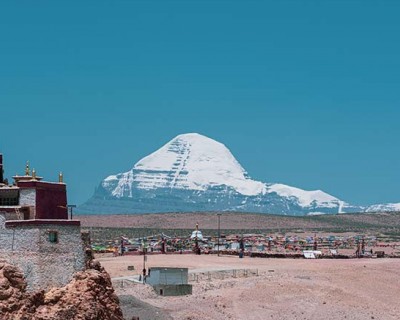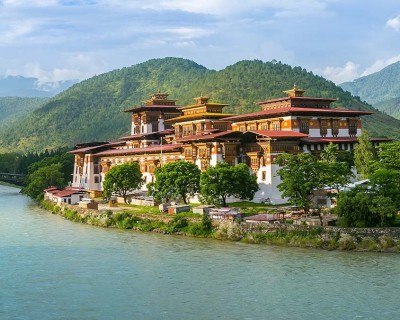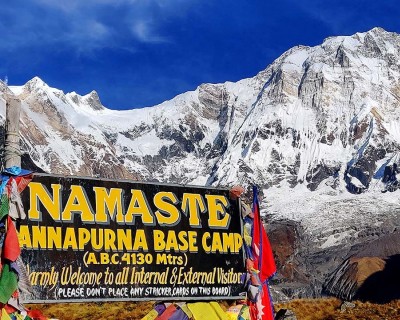If you want a luxurious experience, Don’t worry! - the Everest region has high-end hotels in Lukla, Phakding, Namche, Syangboche, and Debuche. These hotels have all the amenities you could want but come at a premium price.
You can find comfortable accommodation during the Everest Base Camp trek with good planning and research. Every type of lodging along the way has its unique charm and a chance to meet people worldwide, so keep a positive attitude and enjoy the journey!
The Cost Factor
Of course! Accommodation is one of the most significant factors in your Everest Base Camp trek. As mentioned earlier, different types of accommodation are available, ranging from basic to luxurious, and their costs vary accordingly.
The price ranges from cheap tents to medium-priced tea houses and expensive hotels. But remember, it's about something other than the price - you should consider what services and amenities you need.
Types of Everest Base Camp Trek Accommodation
When planning your Everest Base Camp trek, one of the most significant considerations is where to rest your weary bones after a long day of hiking. Everest base camp trek accommodation facilities come in all shapes and sizes, with prices ranging from affordable to downright outrageous. Three main types of accommodations are available: tent camping, tea houses, and hotels.
Tent Camping Accommodation
Most tourists don’t prefer camping these days as you must bring all your stuff alone. If you're feeling adventurous and want to channel your inner Bear Grylls, tent camping is an excellent option. While it may be the cheapest option, you'll be roughing it more than at a tea house or hotel.
You must bring your food, sleeping bags, and essential equipment like a tent, thermal clothes, and gas cylinders.
If lugging heavy gear around isn't appealing, consider hiring a porter to help carry your equipment. This can make your trekking experience more enjoyable and allow you to focus on the stunning scenery rather than the weight on your back.
Regardless of your accommodation choice, ensure you have everything you need to make your trekking adventure successful.
Tea Houses Accommodation
In the Everest region, tea houses are a popular and economical choice for lodging and logistical support for trekkers. Tea houses primarily offer food and logistical support, with some providing additional amenities like hot showers and internet, although the quality may vary. The cost per day ranges between $10 to $15 per person, depending on the location and level of service.
Trekkers can conveniently find overnight accommodations throughout the region by choosing tea houses. These affordable options can be easily found and are widely available, making it a cost-effective way to minimize Everest Base Camp Trek costs.
Hotels Accommodation
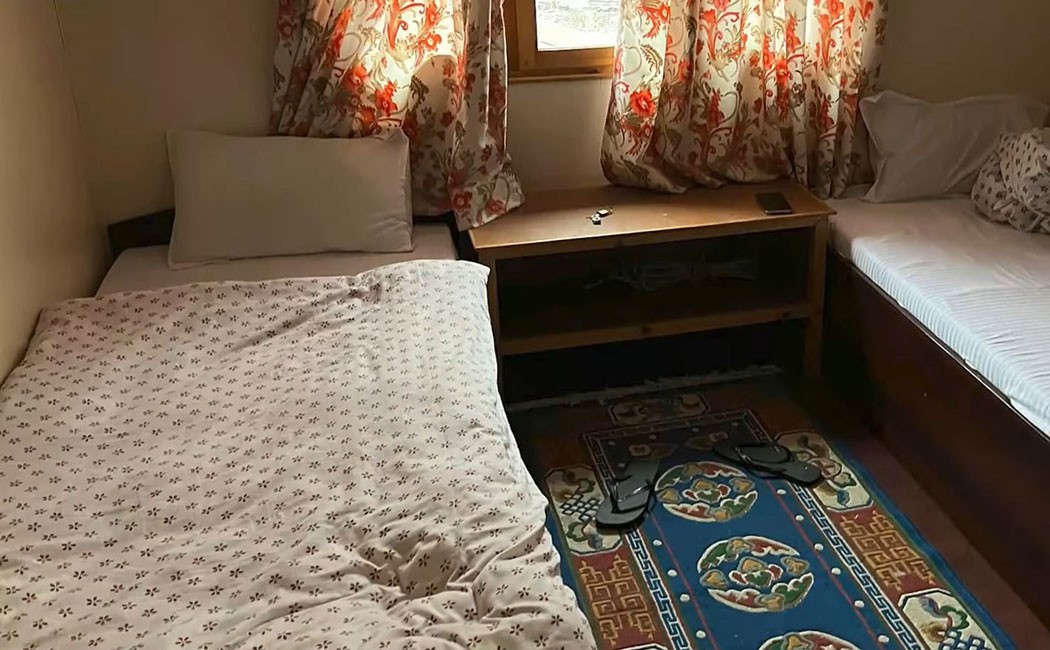
Cost-wise, staying in a hotel or lodge, available till Namche during the Everest Base Camp trek, is like scaling the peak of expenses. While these accommodations provide the luxury of attached bathrooms, hot showers, and charging services, their nightly rates can range from $15 to $30, depending on your preferred level of service.
Finding a room can be as challenging if you're during peak season. That's why booking with a trekking agency like us is wise, as we can ensure you have an excellent place to rest your weary feet. Don't let the cost of lodging be the mountain that stands in the way of your trekking dreams - let us handle the logistics and help you conquer Everest in comfort.
Cost of food for Everest Base Camp Trek
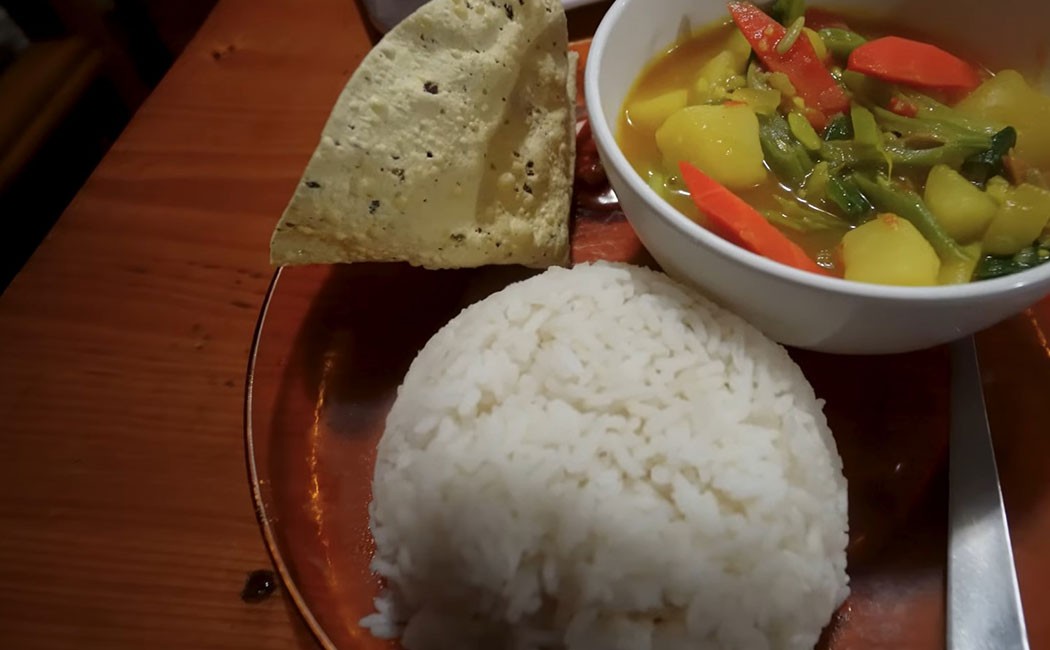
The Everest Base Camp trek is a once-in-a-lifetime adventure that requires at least 12 days of itinerary with acclamatization, and it's no secret that carrying your food can be cumbersome.
However, it's not recommended to bring excessive amounts of food, as you'll be walking for 6-8 hours a day during the trek, and a heavy backpack can quickly become a burden.
Also, there is a common misconception that the high food cost in the Everest region is due to the quality or rarity of the ingredients. In reality, it's a simple case of supply and demand - everything has to be carried by human strength alone!
But there are ways to keep the food cost under control. While hotels, lodges, and teahouses offer food, ordering in advance is crucial to ensure your belly doesn't go hungry.
Now, let's talk about the Everest Base Camp trek food cost. Breakfast usually costs between USD 8-12, while lunch and dinner each cost USD 10-15. That means your daily food budget could be anywhere from USD 30-40, assuming you're sticking to the most common items.
On a personal note, we recommend you carry essential food items like energy water cleaners, bars, chocolates, noodles, etc.
Tips for booking Everest Base Camp Trek Accommodation
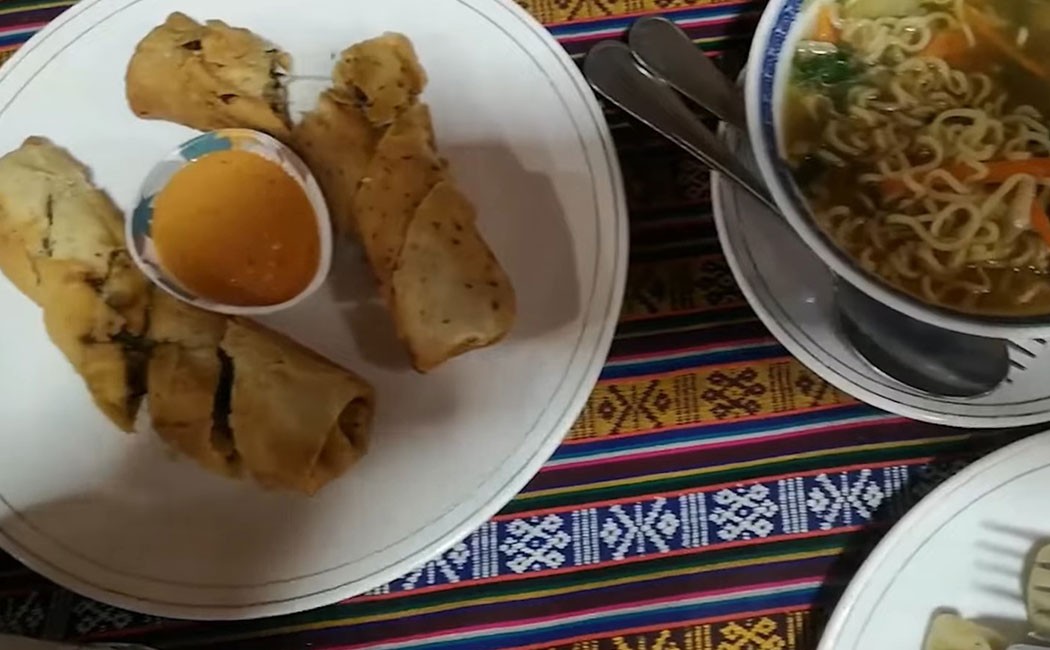
Booking Everest Base Camp trek accommodation can be challenging, exhausting, and frustrating; however, this should not be an obstacle to Everest base camp trekking. Here are some tips to help you conquer:
- Plan ahead: The peak trekking season in the Everest region is from September to November and March to May; therefore, if you plan to trek during these months. Plan so that you can quickly get the accommodation.
- Book through a professional trekking agency: It is advised to reserve your lodging through an experienced and knowledgeable trekking operator. They can secure your accommodation in advance. Lodging in tea houses is more comfortable than camping, and reservations can be made.
- Be flexible: Weather conditions and other factors can cause delays in your trek, which may affect your accommodation bookings. Therefore, it is advisable to be flexible and open to changing your itinerary if necessary. If you can't reach the destination, inform the teahouses to cancel your booking as soon as possible so they can take another booking.
- Bring your sleeping bag: Most tea houses provide blankets, but it is better to bring them for hygiene. You can rent it from Kathmandu /Lukla/ Namche if you don't have one.
- Carry enough cash: Tea houses do not accept credit cards, so they carry enough money. It is advisable to withdraw enough cash in Kathmandu, Lukla, or Namche.
Ensure your Everest Base Camp trek doesn’t become an accommodation nightmare! These tips will help you book a cozy, stress-free place to rest your weary feet and dream of conquering the summit.
Trips you may like:
Final Thoughts on Everest Base Camp Trek Accommodation
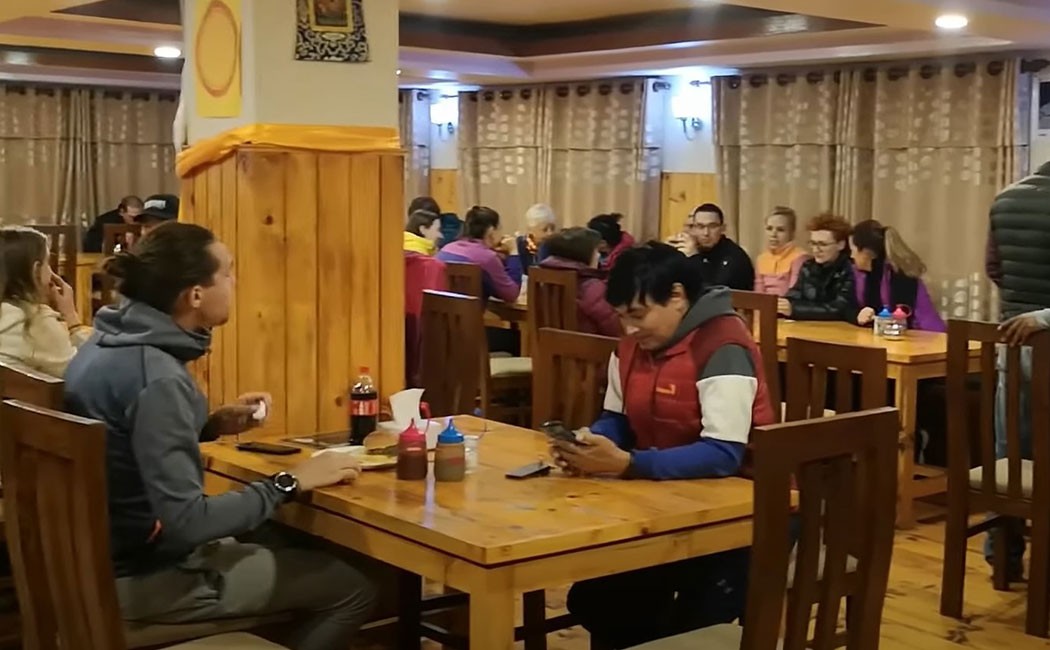
Whether you're a budget-conscious backpacker or a luxurious lodger, you'll find a place to rest your head.
And while the lodgings may not be as expensive as a city hotel, the breathtaking mountain views make up for it. Plan because beds can fill up faster than a Sherpa heading up the mountain.
Plus, you will be surrounded by jaw-dropping natural beauty and get a taste of the local culture through your interactions with the people who call the mountains home. So what are you waiting for? Grab your gear and prepare for an adventure that will leave you feeling on top of the world.
For those seeking an additional level of challenge and excitement in their Himalayan adventure, the Everest Three High Passes Trek is a fantastic choice. This trek not only encompasses the traditional Everest Base Camp route but also traverses three of the highest passes in the Everest region, providing stunning vistas and a unique experience of the region's varied landscapes.
FAQ (Frequently Asked Questions)
Where to stay on Everest Base Camp Trek?
Tea houses are popular and affordable Everest base camp trek accommodations. They are widely available throughout the region, making it easy for trekkers to find overnight accommodations. Depending on location and service level, daily costs range from $10.
Can you stay at Everest Base Camp?
Staying at Everest base camp is not allowed technically. There is no accommodation available at the Base Camp. Therefore, all trekkers return to Gorak Shep after visiting the Everest base camp.
Is the Everest Base Camp trek crowded?
The Everest Base Camp trek can get crowded during peak season, especially from late September to November. Many trekkers are on the trail during this time, and accommodations and services can get quite busy.
Can a beginner trek to Everest Base Camp?
The Everest Base Camp trek does not require any technical climbing skills, but it is still a physically demanding trek and requires good fitness and endurance. With proper training and preparation, YES! Beginners can undoubtedly attempt the walk.
However, consulting a medical professional before embarking on any high-altitude trek is always advisable. Additionally, going with an experienced guide or trekking agency is essential for a safer and more comfortable trekking experience.
Do you need a sleeping bag for Everest Base Camp?
A sleeping bag is essential for a comfortable and warm sleep during the Everest Base Camp trek, particularly in the high mountain regions where temperatures can plummet. A duck or goose-down sleeping bag s recommended for the best insulation.
Is Everest Base Camp worth doing?
Absolutely! The Everest Base Camp Trek is often considered a once-in-a-lifetime adventure, but it's not for the faint of heart. Many trekkers find the climb to be physically and mentally challenging.
In fact, most people will find this journey quite demanding.
While it's certainly a rewarding experience, it's essential to be realistic about the level of effort required to reach the world's highest mountain base camp.
How fit do you need to be to climb Everest base camp?
To prepare for the physical demands of hiking or walking for 6-8 hours with minimal breaks, it's recommended that you gradually build up your endurance. You can train by incorporating hill intervals on a treadmill or using a stair stepper machine twice a week.
In addition to cardio training, it's also recommended that you complete full-body strength workouts twice per week to increase your stamina and overall fitness level further. By gradually increasing your endurance and strength, you'll be better equipped to tackle the Everest Base Camp Trek challenges.







